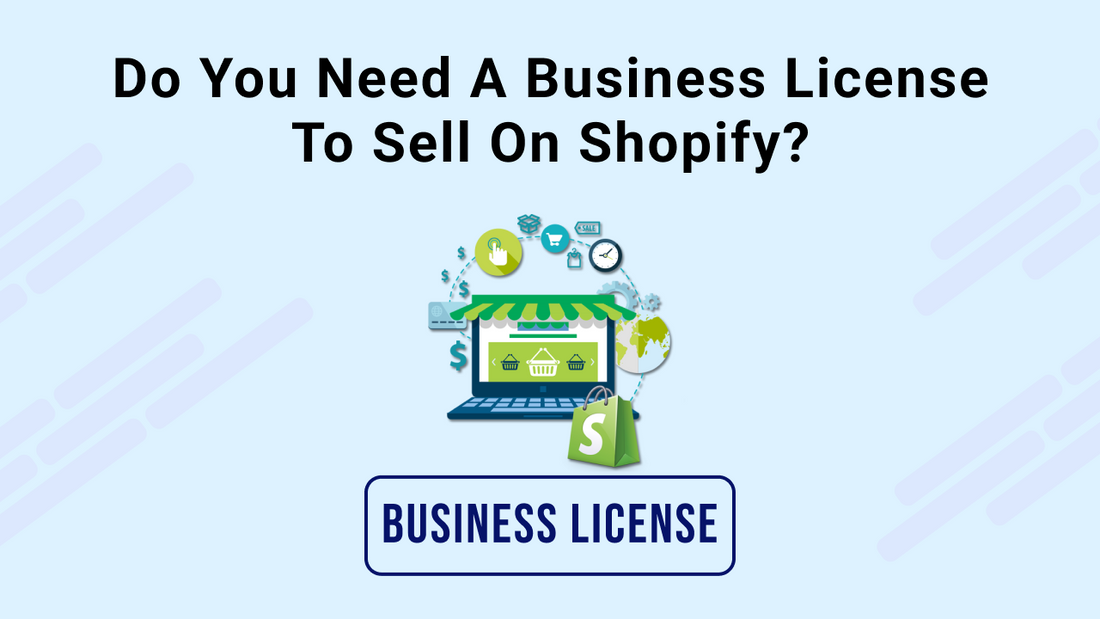Do You Need a Business License to Sell on Shopify
Table of Contents Hide
Many new Shopify merchants hesitate to open a Shopify store because they are afraid of getting into trouble with the law. Since selling online is relatively new, not all people are sure of what they should or should not do. In this article, NextSky will help you find out whether you need a Business License to sell on Shopify.
What is a business license?
A business license is a legal document that proves a company has met all the necessary requirements to operate at the local, state, or federal level. This license is typically issued by government agencies or regulatory bodies to business owners who comply with the regulations.

For example, a brick-and-mortar store might need a local business license to operate legally in a city or town, while an online business might need state-level permits, particularly if it plans to collect sales tax. In short, a business license is the government’s way of tracking businesses to ensure they operate safely and lawfully within their jurisdiction.
Do you need a business license to sell on shopify?
Shopify does not require you to have a business license to start selling. However, it is your responsibility as a seller to comply with applicable laws. In some cases, such as if you have
- Shopify revenue over $20,000/month: Tax authorities and governments will require you to register your official business to file income and corporate taxes.
- Home storage: For food, cosmetics, or health products, you will need a health license, a certificate of storage conditions, and a home business license.
- Using Shopify payments: Shopify Payments sometimes requires you to verify your business license to prevent fraud and money laundering.
- Selling controlled goods: Alcohol, dietary supplements, cosmetics, CBD products, firearms, prescription drugs, etc.
- Local laws require: You must still comply with the business regulations in your place of residence, including planning, environmental, fire safety, etc.
Do you have to pay sales tax?
While selling on Shopify doesn’t require a business license, collecting and remitting taxes is a legal obligation you must fulfill. Sales taxes are typically applied to goods and services and vary based on the geographic location of you and your customers.
This tax responsibility arises when you have a tax nexus, a legal connection to a state due to factors like having a physical location, reaching a sales threshold, or employing staff in that state.
So you can optimize your tax management with tools like Shopify Tax, which automates calculations, reporting, and compliance based on your nexus, laying the foundation for sustainable growth.
Types of business structures
Even if you're just starting out, getting licensed early will give you tax advantages, legal protection, and enhanced business reputation.
- Sole Proprietorship: This is a simple structure if you are selling digital products or dropshipping under your personal name. In this case, Shopify will send you a 1099 tax form for personal tax reporting.
- Limited Liability Company (LLC): An LLC helps protect your personal assets and makes it easy to obtain an Employer Identification Number (EIN).
- Partnership: This structure is for businesses with multiple owners. The process varies depending on state laws.
- Corporation (C Corp/S Corp): This is a more complex structure suited for larger businesses.
- DBA (Doing Business As): This allows your business to operate under a trade name different from its legal name, which can help enhance credibility with customers.
Tip: Even if you're operating as a sole proprietor, registering for an EIN with the IRS and a DBA trade name will help establish professional credibility and allow you to open business bank accounts, sign contracts, and apply for permits.
Types of business licenses
Depending on the type of business, you may need to apply for specific licenses from local, town, city, or county authorities. Below is a list of common licenses to help ensure you don't miss any important requirements:
Local business licenses
- Business license: Issued by the city or county, allowing you to operate within a specific area.
- Building permit: Required for new construction or renovation of facilities.
- Fire safety permit: Needed for businesses with flammable materials or large crowds.
- Health and sanitation permit: Applies to restaurants, hair salons, gyms, etc.
- Zoning permit: Needed if your business operates in an area not properly zoned.
- Sign permit: Some places limit the size or type of signage.
- Home business permit: Required if you store goods, ship products, or host customers at home.
-
Home occupation permit: Specifically required for businesses operated out of residential homes with customer visits, signage, or shipping activity.
State business licenses
- State business license: Helps regulatory agencies manage and collect taxes.
- Sales tax permit: Required if you collect sales tax or sell special items like alcohol or gasoline.
- Resale certificate (or seller’s permit): Allows you to purchase goods for resale without paying sales tax up front.
- Professional license: Necessary for regulated industries like accounting, real estate, beauty services, electricity, construction, etc.
Federal business licenses (Applicable to certain industries)
- Agriculture: If dealing with imports or biological products, you need a license from the Department of Agriculture.
- Alcoholic beverages: A permit is required from the Alcohol and Tobacco Tax and Trade Bureau for producing or distributing alcohol.
- Wildlife: Activities related to wildlife require approval from the Fish and Wildlife Service.
How to obtain a business license
While the process of obtaining a business license may vary depending on the type and needs of your business, here are the basic and essential steps you should follow:
- Register your business: Submit your application to the relevant government agency (usually the Secretary of State's office) and apply for an Employer Identification Number (EIN) from the IRS. This will be used for business licensing and identification at both the state and local levels.
- Prepare necessary documents: Gather important documents such as your business registration, EIN, business details (name, legal structure), business plan, insurance certificate, tax forms, professional certifications, and zoning compliance evidence to expedite the licensing process.
- Apply for a federal license: Start the licensing process with the federal government first, as some state and local licenses may require federal approval before they can be granted.
- Ensure state and local licenses are complete: After obtaining your federal license, apply for your state license, and then proceed with the necessary steps for county or city-level licensing. State business agencies typically provide guidance on the local agencies involved.
- Track and proactively renew your business license: Most business licenses need to be renewed periodically, usually annually. Closely monitoring the expiration dates will help you avoid penalties or complications arising from late renewals.
>>>> Read more:











